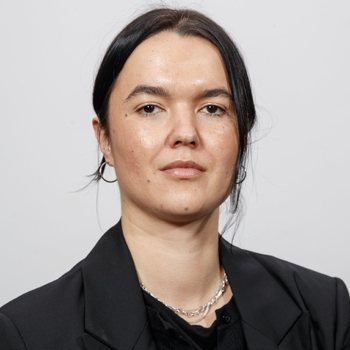“I apologise unreservedly to the Lake Alice survivors for this breach," he said.
“The person responsible immediately apologised to each of the survivors for the breach and acknowledges this was unacceptable.”
The Crown Response Office took its responsibility to protect people’s privacy seriously, and processes had been put in place to ensure a breach like this never happened again, Chhana said.
According to reporting from Newsroom, the bulk email was sent out against the instructions of the Government, and the Abuse in Care Lead Co-ordination Minister, Erica Stanford, is furious.
Stanford said this was a “simple and completely avoidable error”.
Although it was a mistake, it had “very serious” consequences “for a vulnerable group of private people who have now been let down yet again by the state”.
“It was my expectation the Crown Response Office had proper processes in place to ensure data breaches of this nature were not able to occur,” the minister said.
Stanford said she sought an urgent explanation from the Crown Response Office and assurances they had apologised to those affected.
Lydia Oosterhoff, a lawyer with Wellington law firm Cooper Legal, which has represented many survivors, said that instead of a “wishy-washy” apology from the Crown Response Office, those affected deserved financial compensation.
“There needs to be real redress for this breach, and that means compensation,” she told the Herald.
“An apology is just words if it doesn’t come with some meaningful change, and we need to hear what is going to be implemented in these agencies to ensure this doesn’t happen again.”
Oosterhoff said she was also concerned for the safety of those survivors affected, noting that financial abuse was rife within communities.
“These survivors’ names have been sent to each other ... that draws me to question, how are these people going to look at one another – and say, were you the one that got $600,000?
“Not only is this a serious breach of the privacy of abuse survivors who were tortured at the hands of the state, and now have again had their rights breached by the state, I’m [also] concerned for their safety.”
Oosterhoff said the privacy breach would have left a “sour taste” for those impacted – a shame, because the Lake Alice redress scheme was “an example of what good redress looked like”.
“I can just imagine the [independent arbiter] Honourable Paul Davison, KC, is probably feeling absolutely devastated right now,” she said.
“The survivors we had passed through the Lake Alice scheme, they were really satisfied with it and thought the arbiter did a fantastic job when he met with them.”
In July last year, the long-awaited landmark Royal Commission of Inquiry into Abuse in Care report was released, concluding the widespread abuse in state- and faith-based institutions between 1950 and 2019 was a “national disgrace”.
Since then, the Government has issued a formal apology and set up a financial redress scheme for survivors of torture at Lake Alice Hospital.
Survivors were given the option of seeking a $150,000 payment or having their account reviewed by Davison, the independent arbiter.
Davison was not tasked with making factual findings about whether a survivor was tortured at Lake Alice, but started his assessment by accepting a survivor’s account of what happened unless it was contradicted by other information.
He noted survivors made genuine efforts to be accurate in the accounts they provided.
“The survivors have all shown extraordinary courage and resilience by having chosen the individualised pathway and meeting with me to tell me about their traumatic experiences while in Lake Alice Hospital and the hardships over the course of the subsequent lives,” he said in his report, released yesterday.
“Having a history of having been a patient at Lake Alice has quite unfairly attached a stigma of presumed mental instability to them that they have understandably sought to conceal throughout their lives.
“They have been and remain haunted by the memories of what was done to them at Lake Alice and what they saw being done to other children and adolescent patients there.”
Davison said if it were not for the efforts of the survivors, “along with some other survivors who are not participants in the redress scheme, the examination [by the Royal Commission] of what took place in Lake Alice in the 1970s ... would not have occurred or been possible”.
Julia Gabel is a Wellington-based political reporter. She joined the Herald in 2020 and has most recently focused on data journalism.
